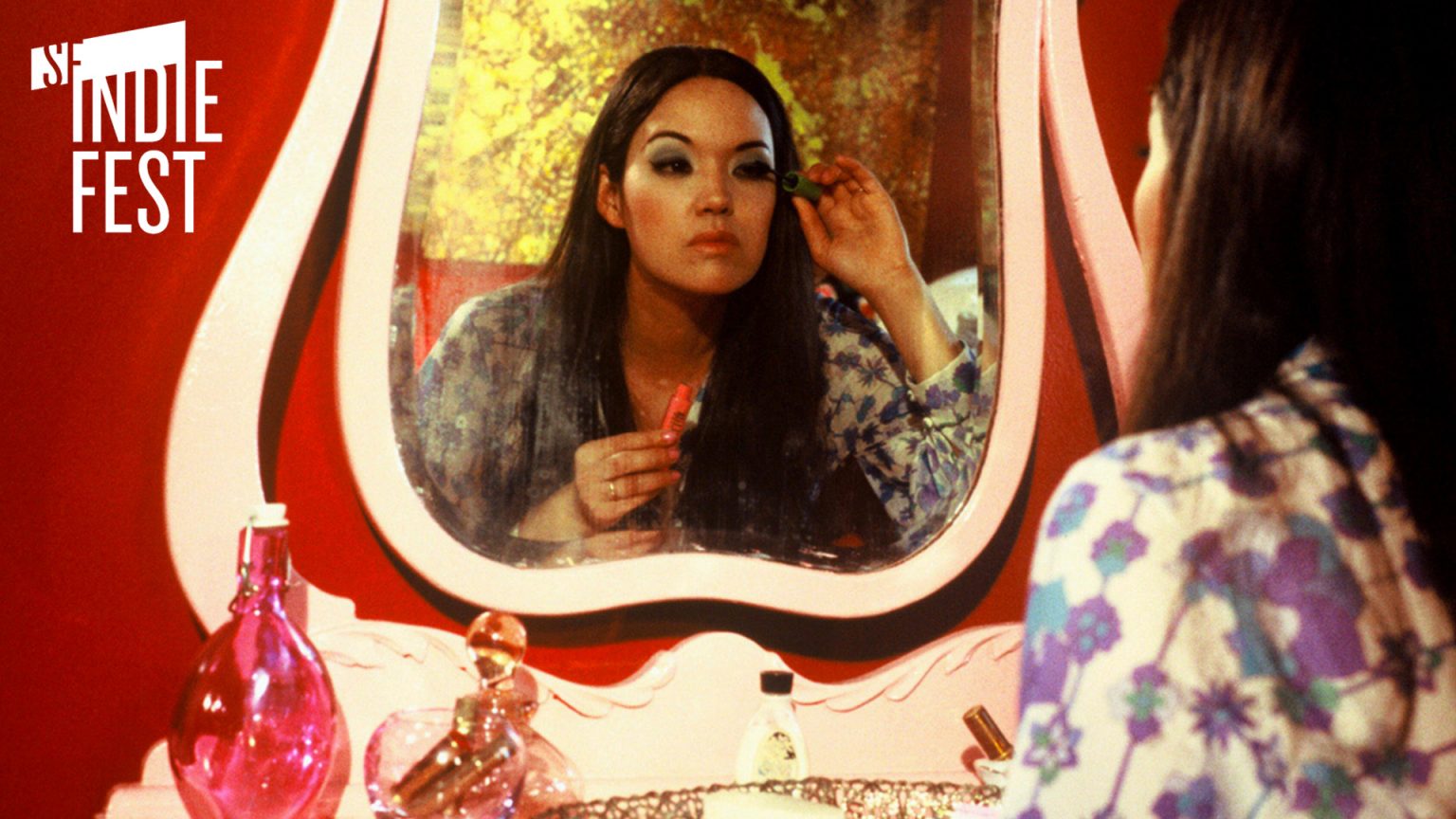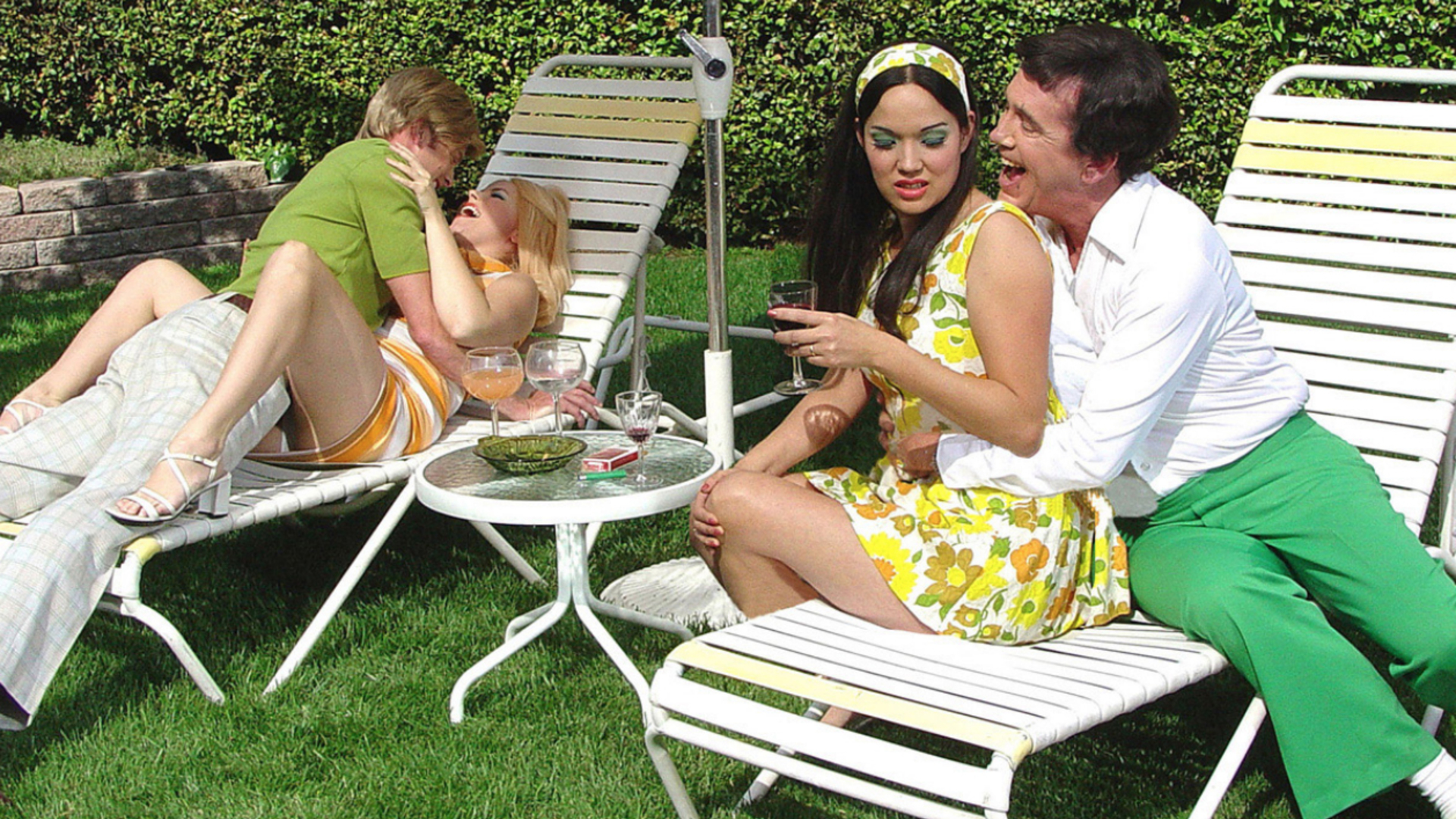Upon its release in late 2016, Anna Biller’s The Love Witch cast a spell on our hearts. It is a stunning send-up of 60s-70s cult cinema with a darkly humorous and unabashedly “femme-inist” twist. It was also our introduction to Biller as an auteur, and in her case, that word definitely applies: from the impeccable production design to the script, direction, and editing, The Love Witch is nothing if not Biller’s baby. But while her attention to detail in faithfully recreating the look and feel of a bygone onscreen era deserves awe and “screenshotting” galore, what’s truly impressive about The Love Witch is how it uses mimicry and the language of aesthetic pleasure as the sumptuous chenille around which to wrap a fist. The punch line is the main character herself, played with sly charm and spot-on affect by Samantha Robinson, who has internalized the gendered expectations swirling around her with a little too much zeal.
Lest we forget, however, this isn’t Biller’s first feature. Thanks to the good people at SF IndieFest, a glorious celebration of gutsy independent cinema that is ongoing in San Francisco through February 15th, Viva, which was originally released in 2007, played on the big screen in Fandor’s hometown earlier this month. What The Love Witch did for vintage Euro-horror, Biller’s auspicious and ambitious debut does for the highbrow sexploitation films of Russ Meyer and Radley Metzger. By lovingly re-creating the look and feel of that time’s artful erotic cinema—from set design, to musical cues, to camera setups—Biller uses Viva as a vehicle to explore women’s desire, pleasure, and the double-edged sword of sexual liberation. As with The Love Witch, the lion’s share of the creative vision for Viva is Biller’s, who also stars. Her protagonist, Barbi, is in some ways a precursor to The Love Witch’s Elaine—pliant, aggressively glassy, and able to pull off some truly fierce blue eye shadow—but unlike Elaine, Barbi is much more of a blank slate. In some ways, one can’t help but think that Elaine was a lot like Barbi once, before the divorce, and the death, and the coven. Both have bright red outfits to match their bright red cars, after all. But while Elaine spirals into a titillatingly toxic maelstrom of deadly infatuation and magic, Barbi’s sexual frustration leads her down a rabbit-hole of Playboy-style antics and increasingly absurd episodes, including, but not limited to, orgies and choreographed song-and-dance numbers.
Grindhouse and exploitation revivals are appealing to audiences in part because they offer ironic enjoyment of lurid, over-the-top, and aesthetically dense cultural relics — the critique feels implicit, and to criticize means one fundamentally doesn’t “get it.” Directors like Quentin Tarantino and Robert Rodriguez have been trading with this currency for quite some time, creating movies that revel in these tropes and offer plenty of pleasure from canny pastiche. However, Biller’s films turn the tables on this ironic positioning. In many ways, her movies are a prescient take on the ways the #MeToo movement has morphed into a discussion about consent, communication, power, and pleasure, and that yawning chasm between expectations and reality. Somehow, knowing that it was Biller who painstakingly handcrafted costumes, hunted down tchotchkes, and otherwise lovingly built the worlds of these films adds to their refusal of irony—her artistic practice is the very antithesis of detachment! And in a world of fast fashion, fad franchises, and problematic faves, of CGI dependence and Fifty Shades of Grey, Biller’s lovingly and intelligently crafted “slow cinema” reminds us that the personal is always political.
Viva is currently available online, but definitely don’t miss the chance to catch it in a (preferably historic) theater near you the next time it comes around for a special engagement! And if you haven’t seen The Love Witch, we aren’t going to freak out. We forgive you. Just, please, please fix it. Also, don’t forget to check out SF IndieFest’s fantastic lineup of screenings, parties and year-round offerings. Even if you’re not a Bay Area resident, you just might find some inspiration for a future movie night!





